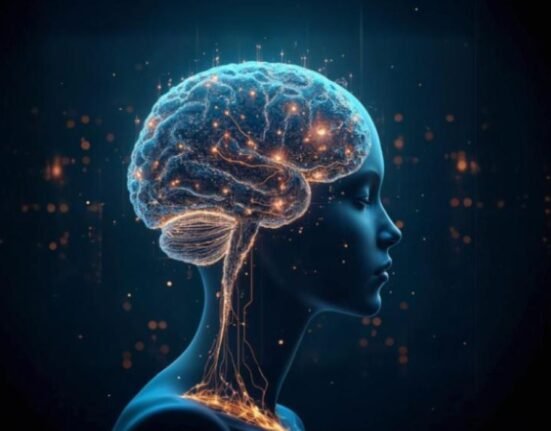Muscle memory is the ability of our trained muscles to regain their form or activity faster when left without training for a while. Let the activity be riding a bicycle, playing an instrument, or performing a dance, muscle memory ensures that a person does not have to relearn a task from stage one. Our body works as a team to achieve what we do every day. Some studies explain muscle memory in terms of brain functioning and others explain it based on the changes observed in the muscles because of training.
Changes Observed in Brain
The brain can rewire and adapt based on the internal and external events. Magnetic resonance imaging can help us to observe and assess the changes and reorganization that happen during motor skill learning. Learning a new skill will increase the number of neural connections and the mass of the brain which in turn leads to more efficiency in performing the skill. The type of neural connections formed and the structural changes depend on the skill that is learned. When you activate these neural connections very often this can help you in strengthening the neural connection and you will be able to perform the skill almost automatically.
Read More: Memory 101: Understanding the Basics of Working Memory
A study was conducted by Oxford to assess the difference in the brain before and after six weeks of juggling training. Results from the MRI scan showed that there was an escalation in connections between brain regions involved in vision and movement which leads to better hand-eye coordination. The primary motor cortex also has an important role to play when it comes to learning actions. Our brain is a wonderful organ that can change based on the demands placed on it called neuroplasticity.
Changes Observed in Muscles
Bruusgaard and his colleagues were among the first to conduct studies on animals to challenge the idea that myonuclei or the nuclei of muscle fibres will be lost during detraining or atrophy. They initiated muscular atrophy and assessed the myonuclear content for up to 4 weeks. They found that about 50% of muscle fiber was lost but there were no changes in the myonuclear content. However, there were other studies to contradict the results obtained. According to myonuclear domain theory, an approximate relationship should exist between the total myonuclear number and muscle fibre size and/or volume.
Recent animal studies have found that the number of myonuclei gained during muscle training is not lost during rest, this can be called myonuclear permanence and this can support our muscles to grow efficiently when trained again as they are in their trained state. This data is based on the experimental studies on rodents. There are several other animal and human studies to support and contradict the concept of muscle memory.
A study by the Gundersen research group is said to be the first experimental evidence for myonuclear retention following muscle hypertrophy. extensor digitorum longus (EDL) muscle of mice was overloaded by synergistic ablation which is a surgical procedure for rapid increase in muscle size or hypertrophy. It was found that the increase in myonuclear number persisted even after 3 months of fiber atrophy. Subsequent studies found that there were no changes in the myonuclear content even during two weeks of HLS or Hindlimb suspension that can lead to muscle loss.
The mice were allowed for 2 weeks of subsequent reloading, and muscle fiber size was recovered back to baseline without any reduction in myonuclear content, suggesting that myonuclear addition may only occur in muscle fibers that experience growth above their “baseline” size. Although many studies contradict the idea of myonuclear permanence, many studies concluded that the myonuclear content gained will be partially preserved, promoting muscle growth afterwards.
Read More: Cognition and Aging: How Age Impacts Memory and Mental Abilities?
Muscle memory to Build muscles
Muscle memory is a game changer when it comes to building muscle. Let us imagine a bodybuilder who gained a great physique with 2 years of consistent training and undergoes detraining for about 5 months. But when he starts retraining, his muscle memory will support him to get back to form much faster than last time. The more you train the better will be your muscle memory.
Experts suggest undergoing adequate strength training and weight training for better muscles, they also tell us to reduce the period of rest and to follow a lifestyle that supports muscle preservation even while detraining. Be patient and work on the quality of the workout that you are performing, visualize the muscles that are involved, sometimes you can visualize even without performing the exercise and this can help in building muscle memory within the brain.
Read More: Exercise Addiction: Balancing the Benefits and Risks for Mental Health
Conclusion
Our body is capable of so many things but, we have never put effort into training it. This is not just the case of building muscle but it is about all the activities in which your muscles are involved. Today you will collapse with just ten push-ups but tomorrow you will do twenty with minimal effort. Train your body, it has the power to do wonderful things. Start today, Our age, injuries, illness, and other personal issues will ask us to rest but don’t worry your muscle memory will answer back if you hold on to consistency and hard work.
Reference +
- Mahaffey, K. (n.d.). Everything you need to know about muscle memory. https://blog.nasm.org/muscle-memory
- Oxford University. (2018, June 18). The amazing phenomenon of muscle memory – Oxford University – Medium. Medium. https://medium.com/oxford-university/the-amazing-phenomenon-of-muscle-memory-fb1cc4c4726
- Mahaffey, K. (n.d.-b). Everything you need to know about muscle memory. https://blog.nasm.org/muscle-memorySnijders, T., Aussieker, T.,
- Holwerda, A. M., Parise, G., Van Loon, L. J. C., & Verdijk, L. B. (2020). The concept of skeletal muscle memory: Evidence from animal and human studies. Acta Physiologica, 229(3). https://doi.org/10.1111/apha.13465













Leave feedback about this